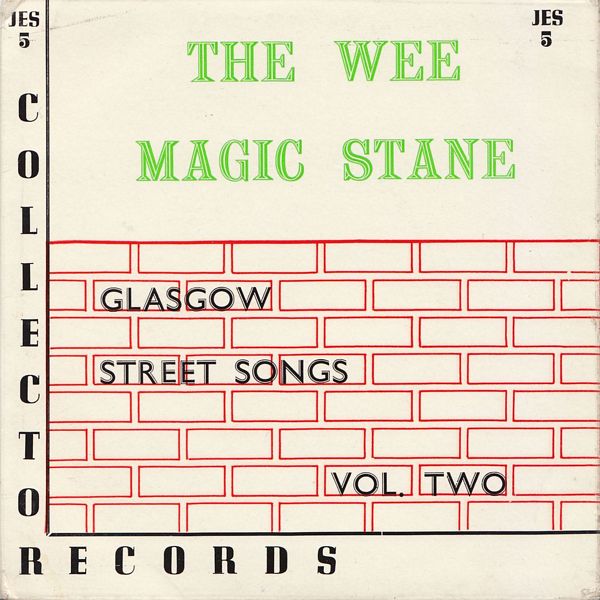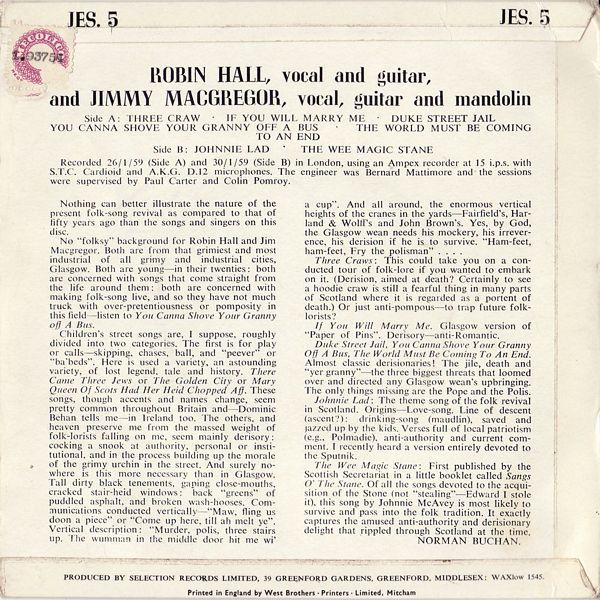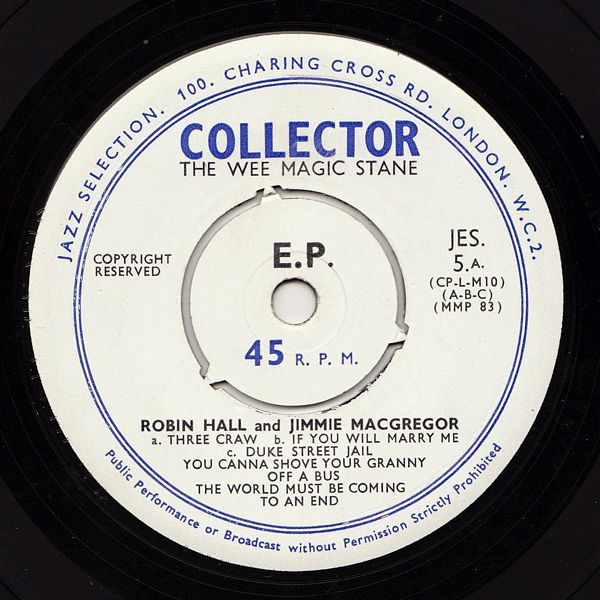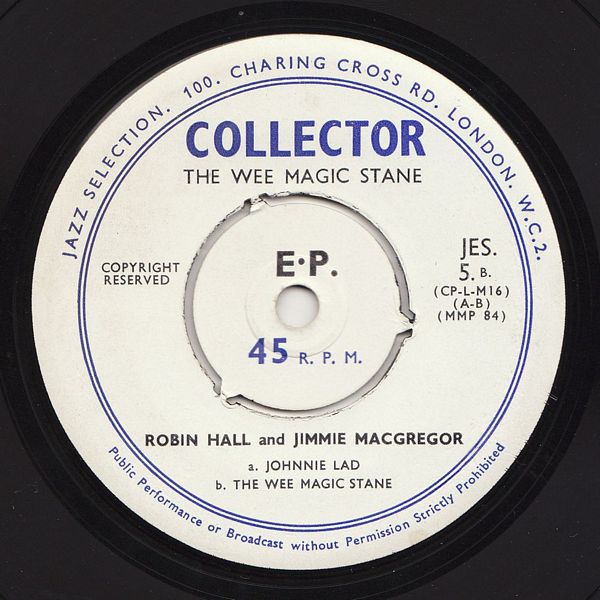

 |



|
Sleeve Notes
Nothing can better illustrate the nature of the present folk-song revival as compared to that of fifty years ago than the songs and singers on this disc.
No "folksy" background for Robin Hall and Jim Macgregor. Both are from that grimiest and most industrial of all grimy and industrial cities, Glasgow. Both are young — in their twenties: both are concerned with songs that come straight from the life around them: both are concerned with making folk-song live, and so they have not much truck with over-pretentiousness or pomposity in this field — listen to You Canna Shove Your Granny off A Bus.
Children's street songs are, I suppose, roughly divided into two categories. The first is for play or calls — skipping, chases, ball, and "peever" or "ba'beds". Here is used a variety, an astounding variety, of lost legend, tale and history. There Came Three Jews or The Golden City or Mary Queen Of Scots Had Her Heid Chopped Aff. These songs, though accents and names change, seem pretty common throughout Britain and — Dominic Behan tells me — in Ireland too. The others, and heaven preserve me from the massed weight of folk-lorists falling on me, seem mainly derisory: cocking a snook at authority, personal or institutional, and in the process building up the morale of the grimy urchin in the street. And surely nowhere is this more necessary than in Glasgow. Tall dirty black tenements, gaping close-mouths, cracked stair-heid windows: back "greens" of puddled asphalt, and broken wash-hooses. Communications conducted vertically — "Maw, fling us doon a piece" or "Come up here, till ah melt ye". Vertical description: "Murder, polis, three stairs up. The wumman in the middle door hit me wi' a cup". And all around, the enormous vertical heights of the cranes in the yards — Fairfield's, Harland & Wolffs and John Brown's. Yes, by God, the Glasgow wean needs his mockery, his irreverence, his derision if he is to survive. "Ham-feet, ham-feet, Fry the polisman" …
Three Craws: This could take you on a conducted tour of folk-lore if you wanted to embark on it. (Derision, aimed at death? Certainly to see a hoodie craw is still a fearful thing in many parts of Scotland where it is regarded as a portent of death.) Or just anti-pompous — to trap future folk-lorists?
If You Will Marry Me. Glasgow version of "Paper of Pins". Derisory — anti-Romantic.
Duke Street Jail, You Canna Shove Your Granny Off A Bus, The World Must Be Coming To An End. Almost classic derisionaries! The jile, death and "yer granny" — the three biggest threats that loomed over and directed any Glasgow wean's upbringing. The only things missing are the Pope and the Polis.
Johnnie Lad: The theme song of the folk revival in Scotland. Origins — Love-song. Line of descent (ascent?): drinking-song (maudlin), saved and jazzed up by the kids. Verses full of local patriotism (e.g., Polmadie), anti-authority and current comment. I recently heard a version entirely devoted to the Sputnik.
The Wee Magic Stane: First published by the Scottish Secretariat in a little booklet called Sangs O' The Stane. Of all the songs devoted to the acquisition of the Stone (not "stealing" — Edward I stole it), this song by Johnnie McAvey is most likely to survive and pass into the folk tradition. It exactly captures the amused anti-authority and derisionary delight that rippled through Scotland at the time.
NORMAN BUCHAN